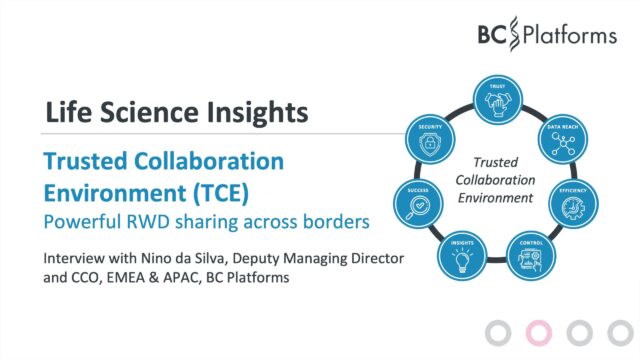
Opening New Perspective to Improve Lung Cancer Treatment Outcomes
Lung cancer ranks among the most prevalent and fatal cancers worldwide, prompting the need for improved treatment outcomes. Effective management relies on understanding tumor characteristics, including histology, clinical staging, and biomarkers. Despite progress in targeted therapies, ongoing research is vital for personalized care. Advances in radiomics offer promise by revealing detailed tumor phenotypes and improving predictive models. However, heterogeneities in study designs hinder clinical translation.
In response, BC Platforms introduces CIAN Lung, a patient cohort initiative focusing on non-small cell lung cancer (NSCLC) and small cell lung cancer (SCLC), an endeavor to leverage clinical and imaging datasets for qualitative and quantitative descriptive analyses, and open new perspectives to enhance the accuracy of predictive and diagnostic computational models.
What is CIAN?
CIAN (Cohort Insights Analytics Networks), combining biological, clinical, histological, and molecular data, facilitates retrospective observational studies, search or validation of predictive and prognostic signatures, and other applications.
CIAN’s harmonized data model ensures the highest quality standards and fosters collaboration across contributing institutions. It has already been leveraged by Academia, Biotech, top Pharmaceutical, and Medical Device companies.
- Trusted third-party: BC Platforms’ software suite deployed on-premises of our partner hospitals, enables selection, extraction, de-identification, enrichment, and routing of large amounts of imaging data. It provides unique capabilities to combine imaging, clinical, pathology, and biological data.
- Enriched imaging data: Images extracted from PACS undergo a rigorous and deep de-identification process, from DICOM metadata down to the application of specific masks to remove identifiable features at the pixel level.
- Interoperability: A harmonized and standardized data model ensures seamless integration and exchange.
- Quality Control: State-of-the-art methodologies uphold data quality and integrity, including data validation and error detection routines.
- Multicentric and multimodal approach: Extraction from multiple sources will span from January 2017 to December 2028, including data from EMRs, pharmacy, Laboratory Information Systems (LIS), biobanks, and imaging systems (PACS, RIS).
- Privacy and Ethics: Commitment to patient privacy, consent, and regulatory compliance (HIPAA, GDPR) ensures transparent communication with patients regarding data usage and safeguards their fundamental rights.
This process generates deep, high-quality regulatory grade multicentric datasets, ensuring collection from patient populations across institutions, strengthening statistical power.
How can CIAN Benefit Research?
CIAN provides robust, near real-time and ready-to-use datasets, empowering researchers to uncover novel insights, validate treatment strategies, and optimize care.
It offers multiple opportunities for stakeholders:
• Surfacing and validating imaging biomarkers, for discovery and validation of predictive markers in disease progression.
• Facilitating development of precision radiotherapy, for personalized treatment strategies.
• Improving machine learning models for accurate prognosis and treatment prediction.
• Comparing treatment effectiveness across sites and geographies, supporting global health technology assessments (HTA), and informing healthcare policies.
• Validating external control arm approaches to reinforce single-arm clinical trial outcomes.
• Uncovering patient journeys with critical data points such as diagnosis dates, medical visits, treatments, laboratory data, and ECOG* measurements, to facilitate evaluating overall survival (OS) and progression-free survival (PFS), thus informing treatment strategies.
Key Figures:
With the recruitment of 3,000 patients, starting in 2017 across six leading centers in France and Spain, with various stages of NSCLC and SCLS represented, the project will expand to 15 European centers over the next year. It meticulously documents 230+ variables per patient. These efforts should result in validating a scientific report by December 2029, marking a significant contribution to cancer research.
Conclusion:
BC Platforms will incorporate additional data modalities and expand to new international data partners to maximize CIAN’s impact and reach.
Through its comprehensive and collaborative approach, CIAN is poised to reshape the landscape of cancer care, accelerate the development of personalized medicine, and drive breakthroughs that will benefit patients, researchers, and healthcare providers.
* Eastern Cooperative Oncology Group is a widely used system for assessing the functional status of cancer patients, often used in clinical trials to assess a patient’s ability to perform daily activities and tolerate cancer treatment.
LEARN MORE: Download CIAN Lung Fact Sheet


